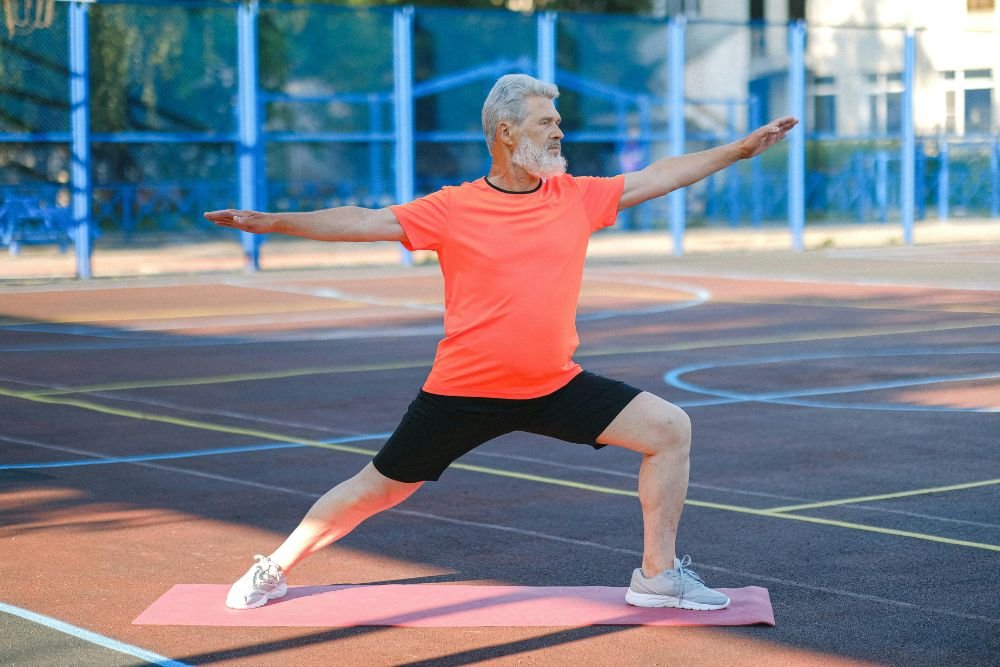Unlock fast relief with our guide to quick constipation relief for elderly individuals. Find practical solutions for better bowel health.
Constipation, a common gastrointestinal issue, can be particularly challenging for the elderly population. While it’s often perceived as a minor inconvenience, it can significantly impact one’s quality of life.
Elderly individuals are more susceptible to constipation due to factors such as decreased mobility, medication use, and dietary changes.
Addressing this issue requires a multi-faceted approach, encompassing both immediate relief and sustainable solutions.
Table of Contents
Quick Relief Strategies
Hydration is Key
Dehydration is a major contributor to constipation in the elderly. Encouraging adequate fluid intake is crucial for maintaining bowel regularity. Water, clear broths, and diluted fruit juices can help hydrate the body and soften stool, easing the passage through the digestive tract.
- Adequate fluid intake: Ensuring seniors consume enough fluids throughout the day is essential for preventing dehydration, a common cause of constipation.
- Water, clear broths, and diluted fruit juices: These beverages are excellent choices for hydration and can aid in softening stool, making bowel movements more comfortable.

Warm Liquids for Stimulation
Warm beverages like herbal tea or water with lemon can have a stimulating effect on the digestive system, promoting bowel movements. The warmth helps to relax the muscles in the gastrointestinal tract, facilitating the passage of stool.
- Stimulating effect: Warm liquids can encourage peristalsis, the wave-like muscle contractions that move stool through the intestines.
- Relaxation of muscles: The warmth of these beverages helps to soothe and relax the muscles in the digestive tract, making it easier for stool to pass through.
Join the 84,445 individuals already experiencing blissful constipation relief! Try it now!
Stool Softeners: Proceed with Caution
While over-the-counter stool softeners can provide quick relief, they should be used cautiously, especially by the elderly.
Consulting a healthcare professional before use is essential, particularly for individuals with underlying health conditions or those taking multiple medications.
Stimulant laxatives, in particular, should be approached with care due to their potential side effects.
- Consulting a healthcare professional: Seeking medical advice before using stool softeners or laxatives ensures safe and appropriate usage, especially for seniors with complex health needs.
- Potential side effects: Stimulant laxatives can lead to dependency and may exacerbate underlying health issues, underscoring the importance of cautious use.
Incorporating these quick relief strategies into an elderly individual’s daily routine can provide much-needed relief from constipation while promoting overall digestive health.
Long-Term Solutions: Dietary Adjustments
Fiber-Rich Diet
Fiber plays a crucial role in maintaining regular bowel movements. A diet rich in soluble fiber from fruits, vegetables, and whole grains can promote digestive health.
Gradually increasing fiber intake can prevent bloating and discomfort commonly associated with sudden dietary changes.
Unlock the power of plant fibers for your gut health. Order today!
Prunes and Prune Juice
Prunes and prune juice are natural laxatives that contain fiber and sorbitol, a sugar alcohol that helps draw water into the intestines, softening stool.
Including prunes or prune juice in the diet can be an effective way to alleviate constipation in the long term.
Limit Processed Foods
Processed foods, often low in fiber and high in fat, can exacerbate constipation. Opting for whole grains, fresh fruits, and vegetables can provide essential nutrients and promote healthy digestion.
Avoiding processed snacks and meals can significantly improve bowel regularity over time.
Adopting Healthy Lifestyle Habits

Physical activity is essential for maintaining overall health, including digestive function. Encouraging elderly individuals to engage in regular exercise such as walking, yoga, or light stretching can stimulate bowel movements and alleviate constipation symptoms.
Establish a Bathroom Routine
Developing a regular bathroom routine can train the body to expect bowel movements at specific times, promoting consistency in bowel habits.
Even if there’s no immediate urge, setting aside time for bathroom breaks can help maintain regularity.
Pelvic Floor Exercises for Strength
Strengthening pelvic floor muscles through targeted exercises can improve bowel control and ease the passage of stool.
Incorporating pelvic floor exercises into a daily routine can be particularly beneficial for elderly individuals experiencing constipation.
Manage Stress
Stress can exacerbate constipation symptoms. Encouraging stress-relief techniques such as deep breathing, meditation, or gentle yoga can help alleviate tension in the body and promote relaxation, improving overall digestive function.
Monitor Medications
Some medications can contribute to constipation as a side effect. It’s important to consult with a healthcare professional to assess medication regimens and explore alternative options or dosage adjustments if necessary.
When to Seek Medical Attention
While lifestyle modifications and dietary changes can often effectively manage constipation, it’s essential to seek medical attention if symptoms persist or worsen.
Severe constipation lasting more than a week or accompanied by symptoms such as abdominal pain, bloody stools, or vomiting may indicate an underlying medical issue requiring prompt evaluation and treatment.
Conclusion Quick Constipation Relief for Elderly
Elderly constipation requires a comprehensive approach that addresses both immediate relief and long-term solutions.
By incorporating hydration, dietary adjustments, lifestyle habits, and additional management strategies, constipation symptoms can be effectively managed, promoting better digestive health and overall well-being in the elderly population.

